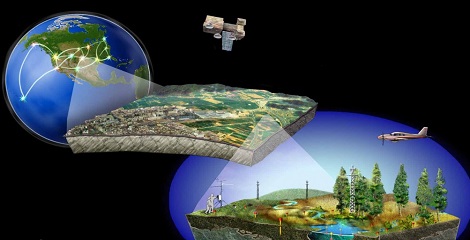India has launched the Indian Long Term Ecological Observatories (I-LTEO) programme to scientifically monitor 8 different biomes (natural landscapes) across the country.
- The initiative was launched on the sidelines of the Conference of Parties-21 (COP-21) of UNFCCC in Paris.
- It aims to identify and monitor targeted socio-ecological challenges and help build capacity within India. The studies under the programme will indicate the need for imminent adaptation measures.
 Highlights of the LTEO Programme
Highlights of the LTEO Programme
- Training – Under this programme, students and young scientists will also be trained through sustained long-term support for research in the area of climate change.
- Own data base – It will help the country to have its own scientific data-base in this key area without depending on studies done abroad.
- Coverage – The new initiative will cover all the major biomass of the country from Western Himalayas to Western Ghats, Eastern Himalayas to Andaman & Nicobar Islands, central India to the Sunderbans and from Jammu & Kashmir to Rajasthan and Gujarat.
- Scientific monitoring – Long term scientific monitoring of the natural landscapes, water resources, grasslands, mammals, birds, fishes and insects will also be carried out.
- Climate affect – The focus would be on the patterns of how changes in climate are affecting natural and closely associated human systems of agriculture and pastoralism.
The work on LTEO Programme is being done in a number of developed and developing countries. India too was doing it but was restricted to only one place in the country – a 50 hectare plot at Mudumalai which has been monitored for over the past 30 years by the Indian Institute of Science, Bangalore.
AffairsCloud Recommends Oliveboard Mock Test
AffairsCloud Ebook - Support Us to Grow
Govt Jobs by Category
Bank Jobs Notification




